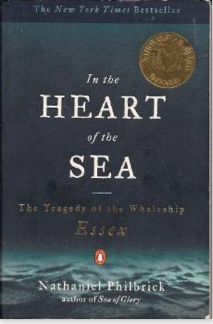what are you reading?
/I like to read real books. I like to see the typeface used, the type of paper, if they do any special illustrations for each chapter. But I was on vacation a couple weeks ago and decided to load my iPad with books. This was my first one.
At first glance Harold Fry is a sad, lonely English milquetoast, the human equivalent of a potted geranium. “The Unlikely Pilgrimage of Harold Fry,” Rachel Joyce’s first novel, contrives a way to shake him out of his monotonous life and send him on a voyage of self-discovery. Harold will learn that there is more to life than mowing one’s lawn. Readers will learn that one man’s quiet timidity should not be taken at face value. Potted geraniums have feelings too.
Ms. Joyce’s novel, a sentimental nominee for this year’s Man Booker Prize, has a premise that is simple and twee. One day Harold receives a letter from an old acquaintance, Queenie Hennessy. Queenie is dying at a hospice that is 627 miles north of Harold’s home near the English Channel. When Harold reads the letter, he responds with a tearful “I um. Gosh.” Then he writes her a postcard and walks down his road to mail it. Then he keeps on going. - The New York Times
I did enjoy this book. But then I got to read most of it in sunny Oak Creek, AZ in the back yard of a nice house with the sun warming me.
The clock is always ticking in Andrew Sean Greer’s “Impossible Lives of Greta Wells.” Elegiac in tone, this tale of time travel, loss and compromise is as precisely engineered as a Swiss watch. The premise is deceptively simple. It is 1985, and Greta Wells, a photographer living in Greenwich Village, has just suffered two devastating losses: Her twin brother, Felix, has died of AIDS and her lover, Nathan, has left her for another woman. Thrown into a deep depression, she consults a psychiatrist, who in turn sends her to Dr. Cerletti, an advocate of electroconvulsive therapy. “Will it change me?” Greta asks, before her first session. “Not at all, Miss Wells,” he replies. “What has changed you is your depression. What we’re trying to do is bring you back.”
Instead the treatment takes Greta away. The next day she wakes up in her own room — but not in her own time. “Instead of my white walls, I saw pale lilac wallpaper patterned in ball and thistle. Gold-framed paintings placed along it, and sooty gaslight back plates.” Not only that, she’s a different Greta. “I marveled at the long red hair falling in waves over the delicate yellow nightgown I had never owned before, trimmed with little useless ribbons. I touched my face and wondered: What trick was this? How could this be me?”-New York Times
OK, maybe I choose these two book in part because of their interesting titles. Both were good vacation reads.
Almost done reading this nice, heavy coffee table book on 100 years of Hallmark. I always wanted to work at Hallmark. Now that I am reading this book I really wish I had a chance to work there. This book is borrowed and I need to finish it and return it.
I have a big stack of books that I have been given or have somehow have just appeared. I did receive the 3 volume set of The 50 Shades of Grey. I think I'll read 100 pages just to see what all the hoop-la is all about.
Another gift and it is the next book I am going to read...
The ordeal of the whaleship Essex was an event as mythic in the nineteenth century as the sinking of the Titanic was in the twentieth. In 1819, the Essex left Nantucket for the South Pacific with twenty crew members aboard. In the middle of the South Pacific the ship was rammed and sunk by an angry sperm whale. The crew drifted for more than ninety days in three tiny whaleboats, succumbing to weather, hunger, disease, and ultimately turning to drastic measures in the fight for survival. Nathaniel Philbrick uses little–known documents-including a long–lost account written by the ship’s cabin boy-and penetrating details about whaling and the Nantucket community to reveal the chilling events surrounding this epic maritime disaster. An intense and mesmerizing read, In the Heart of the Sea is a monumental work of history forever placing the Essex tragedy in the American historical canon.-Nathaniel Philbrick
This appears to be a rather eclectic list, but then I think my reading always is.
So what are you reading?






